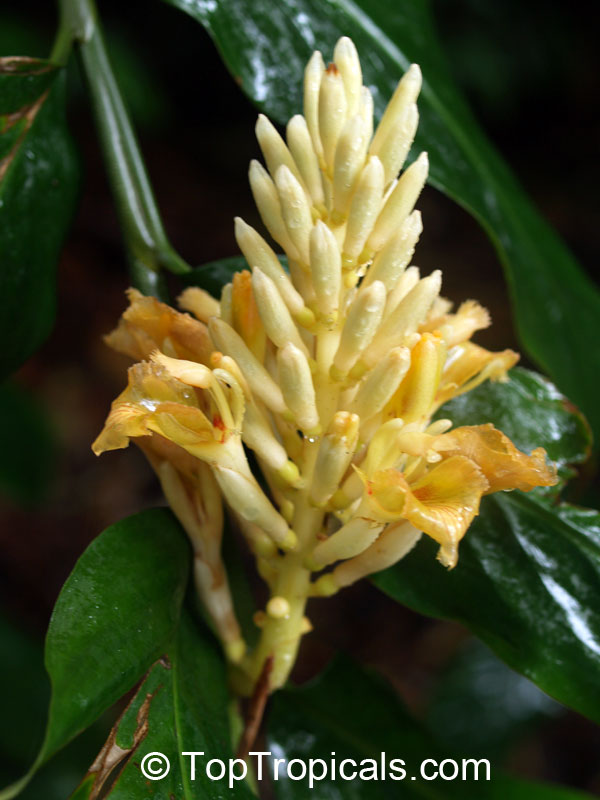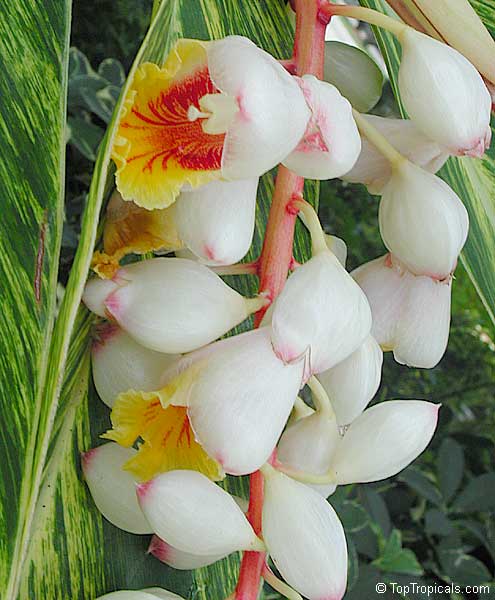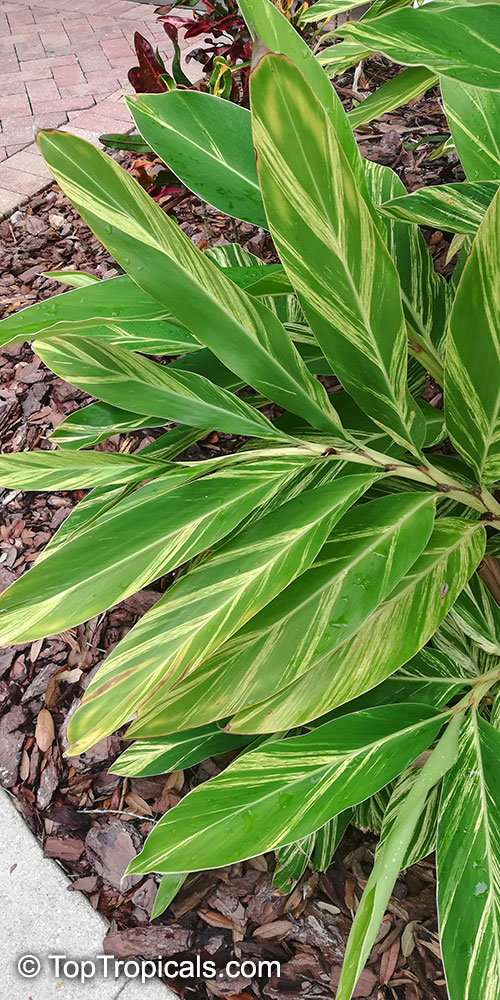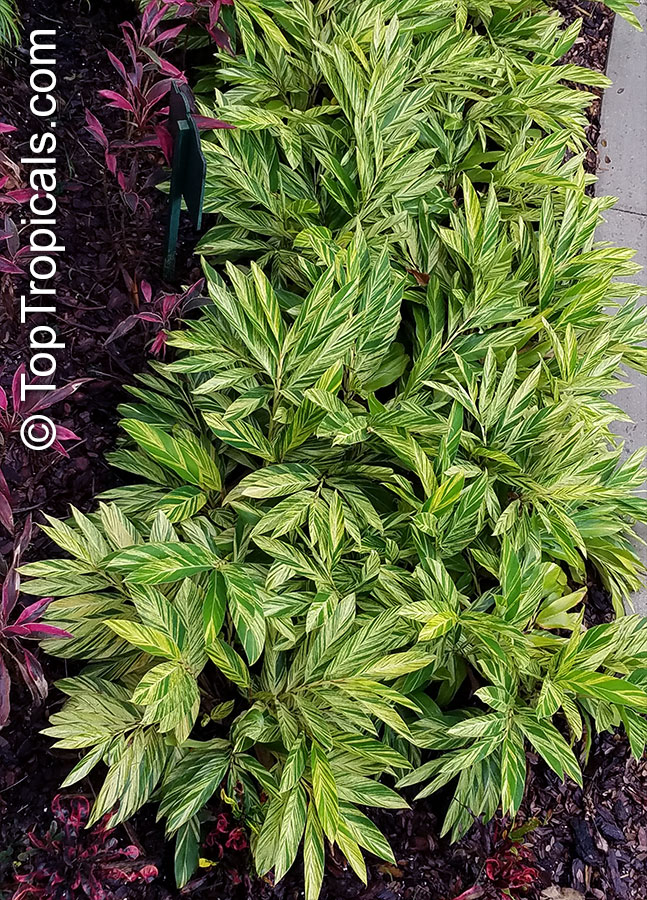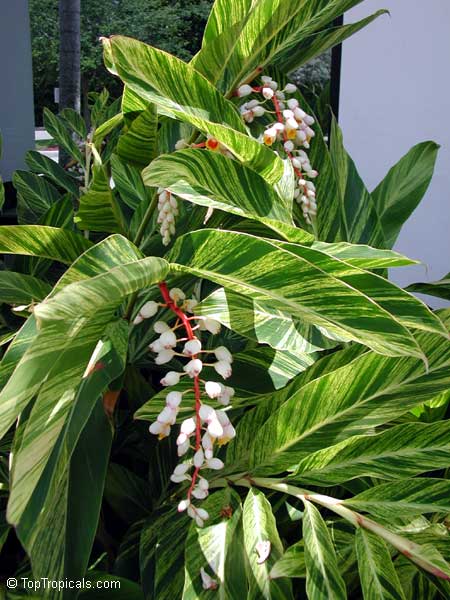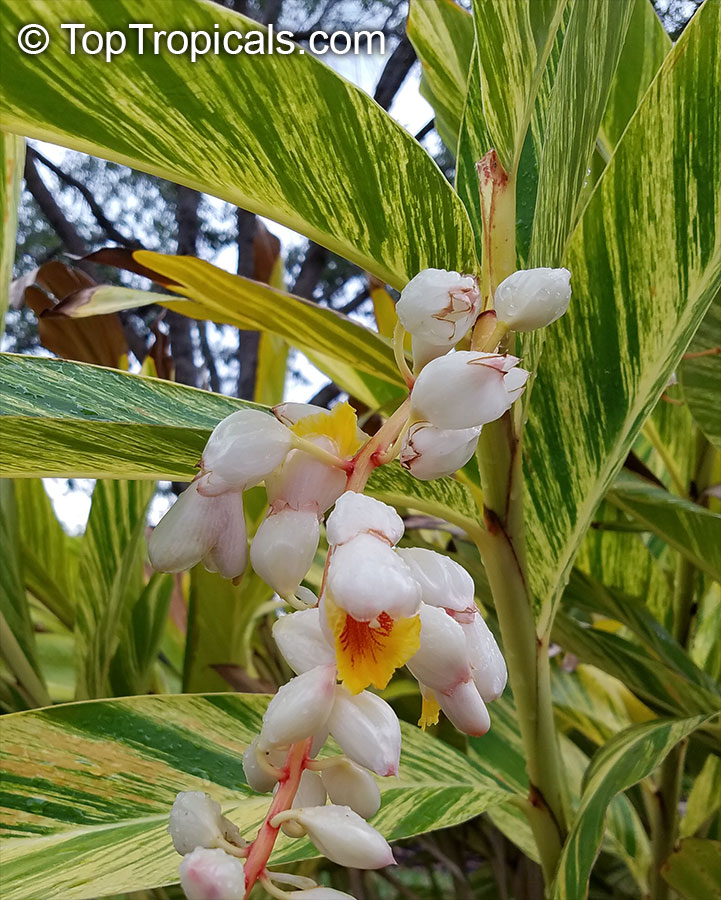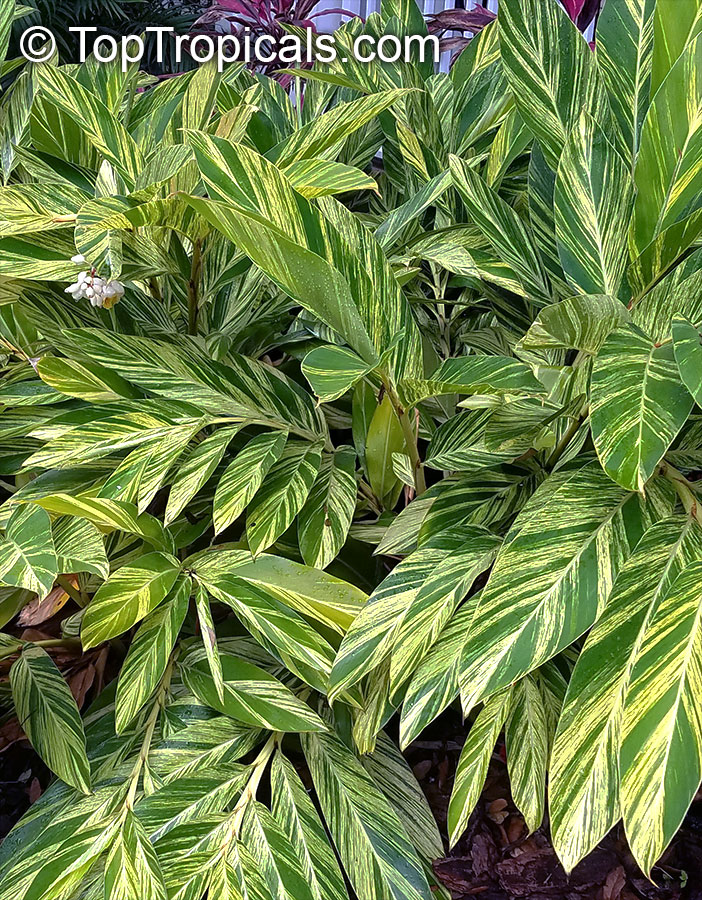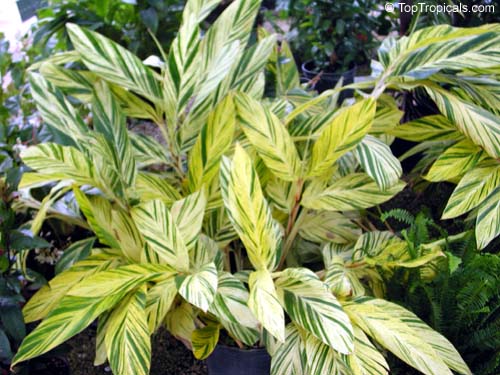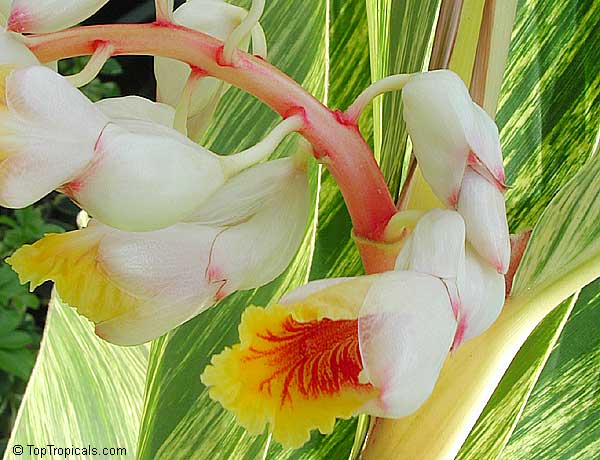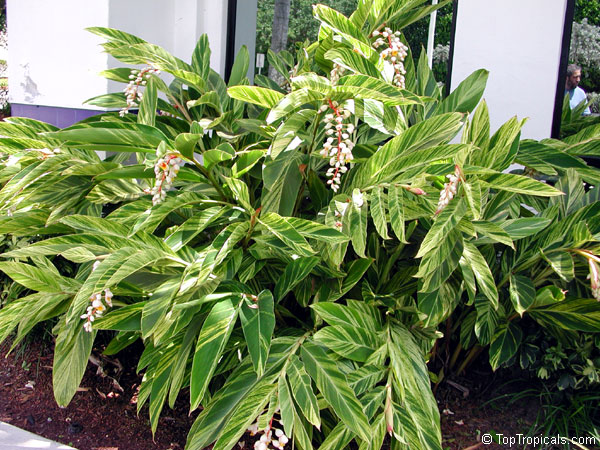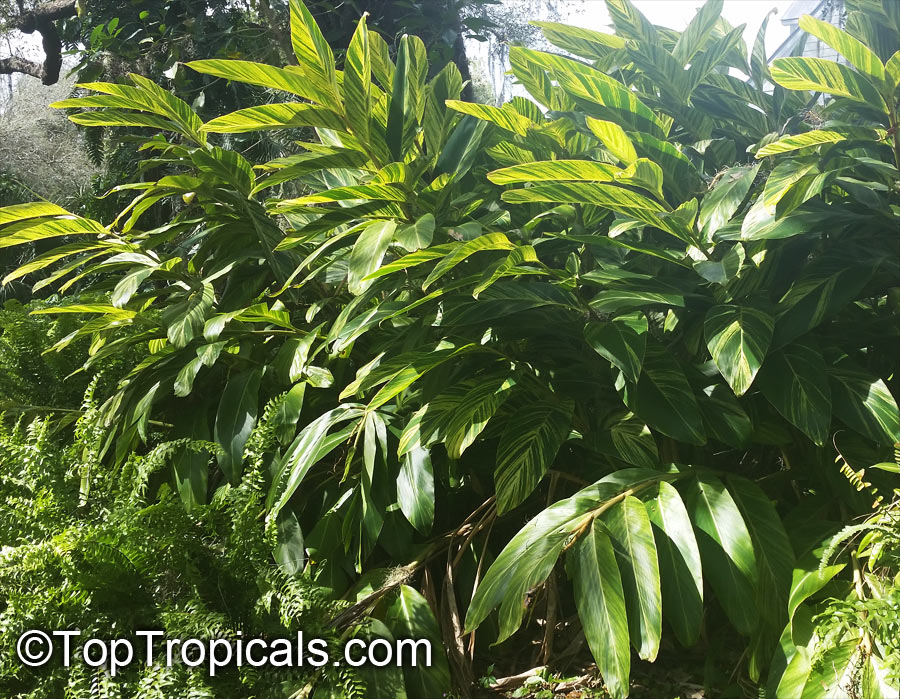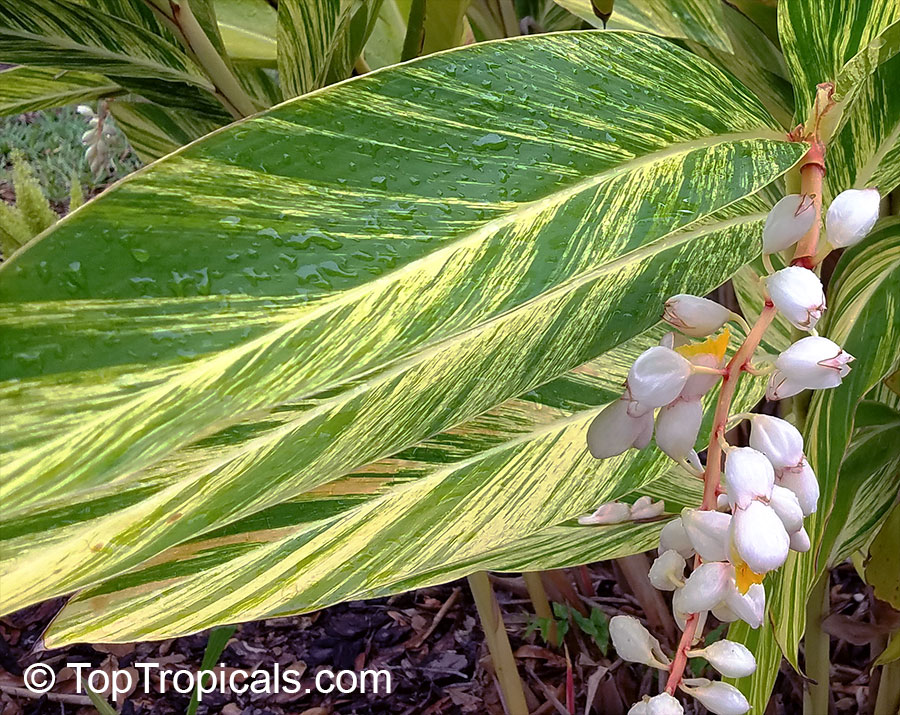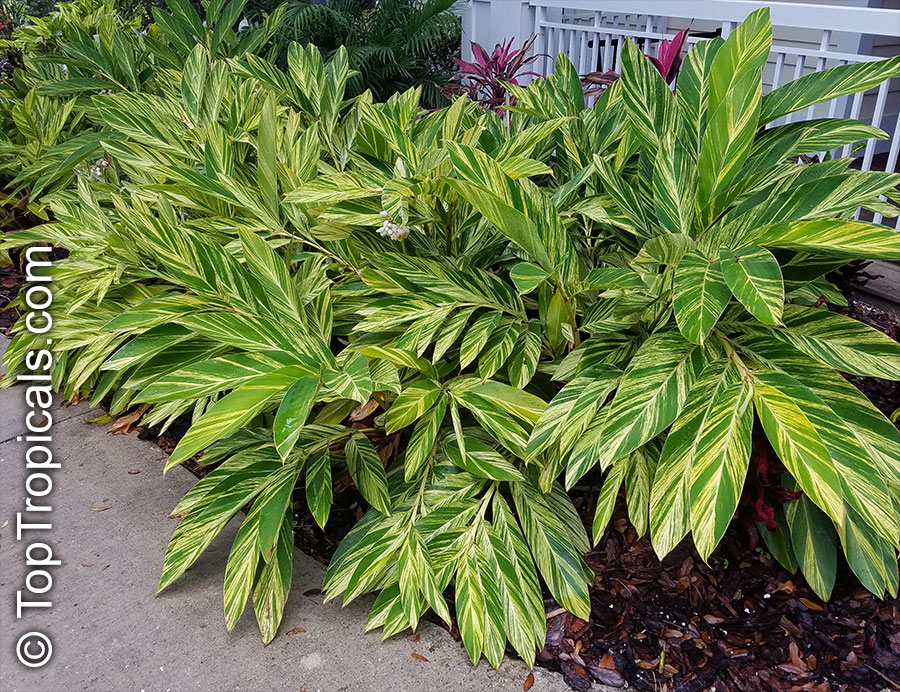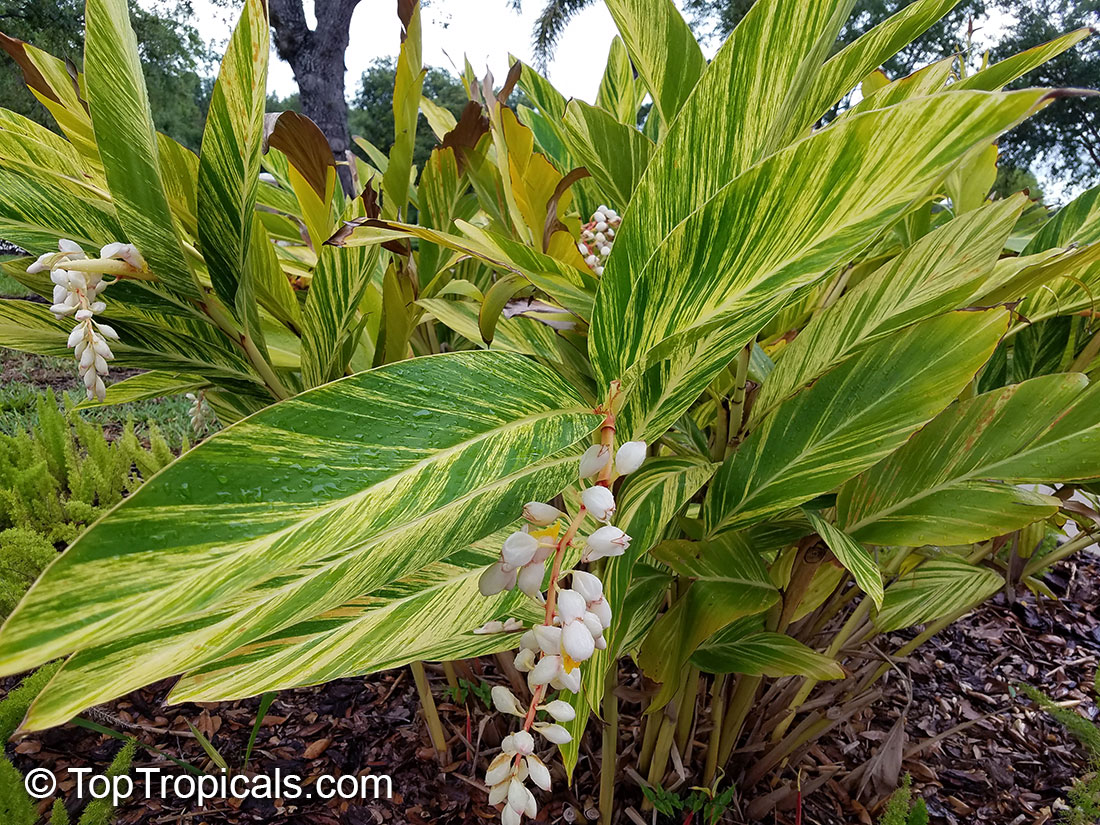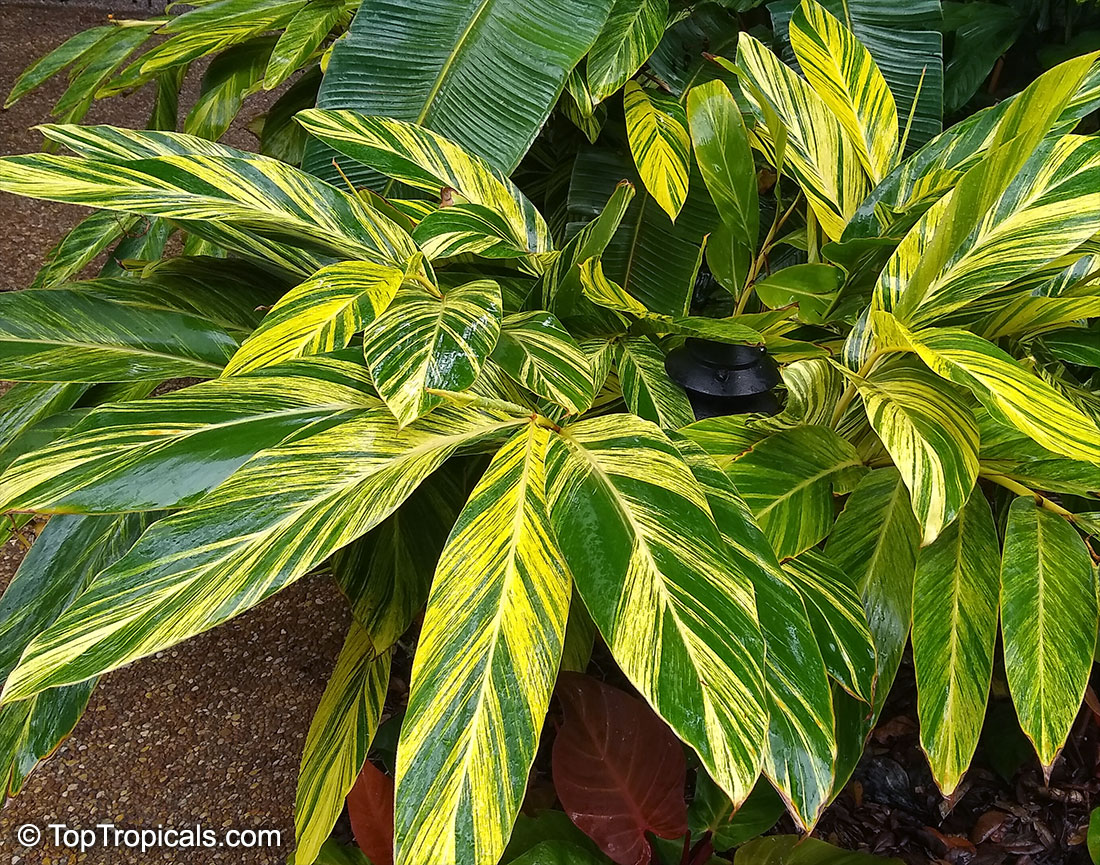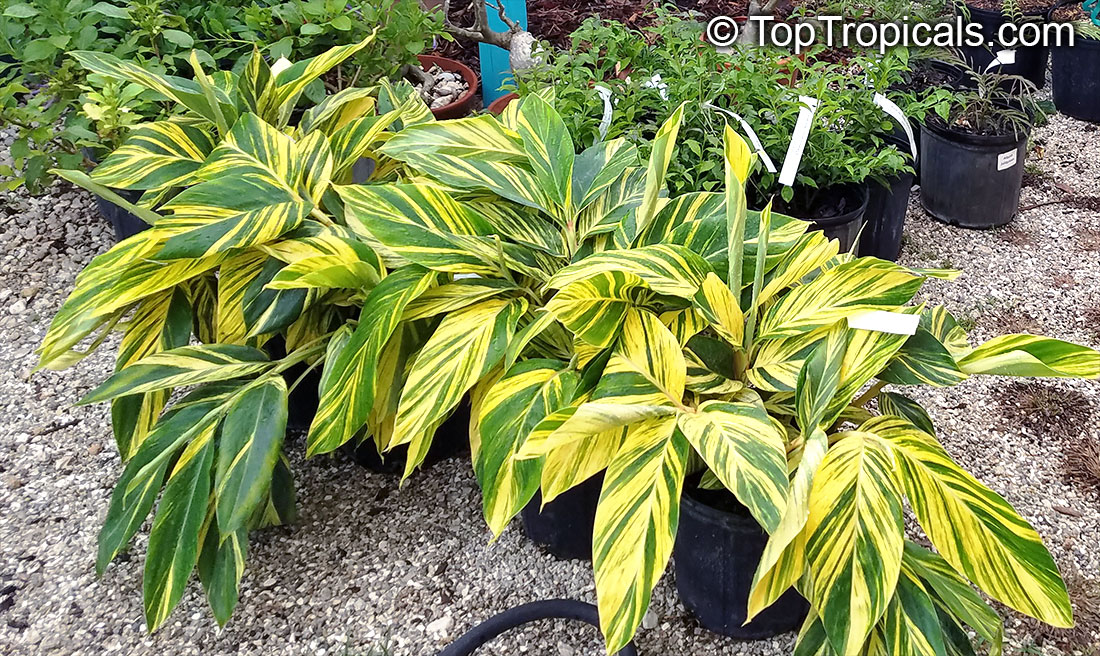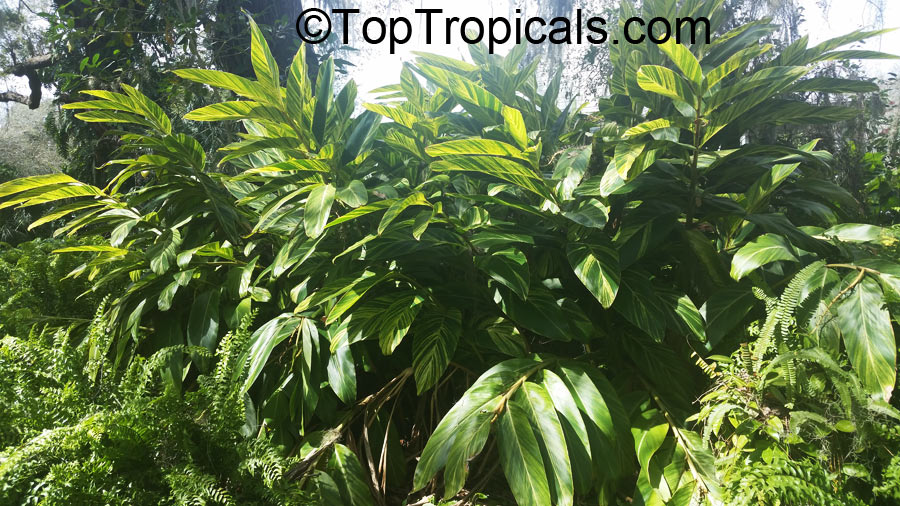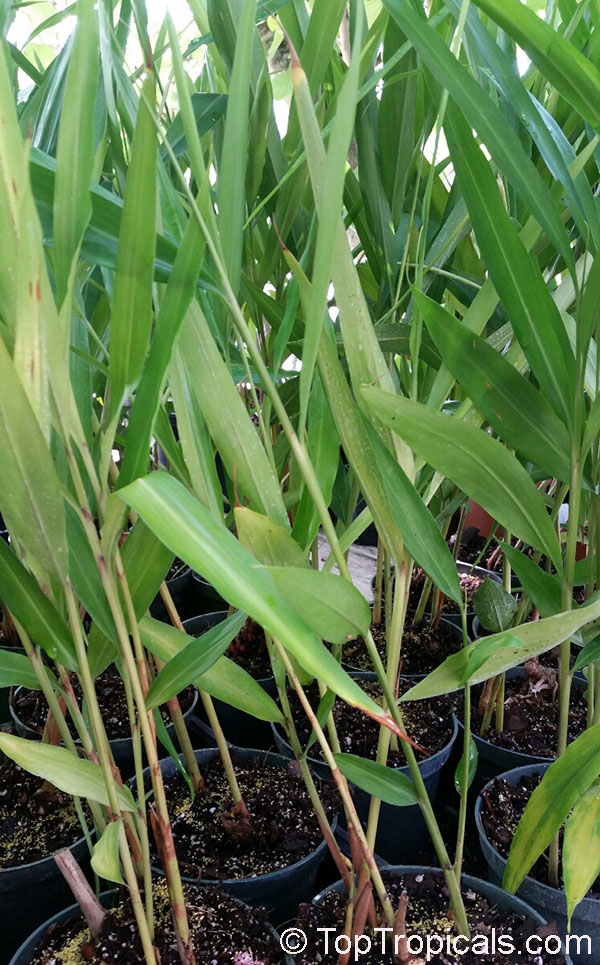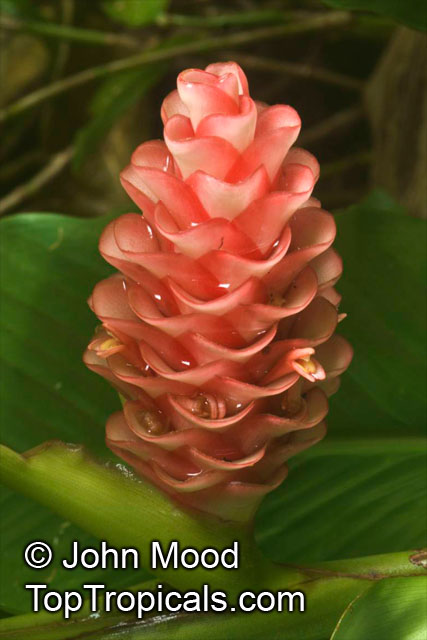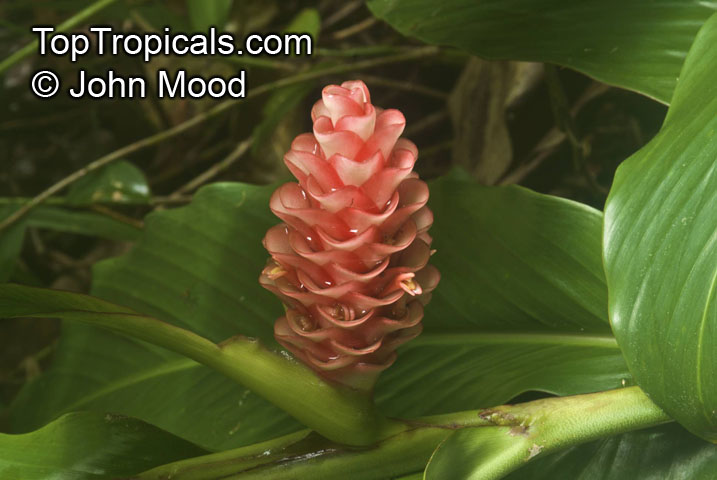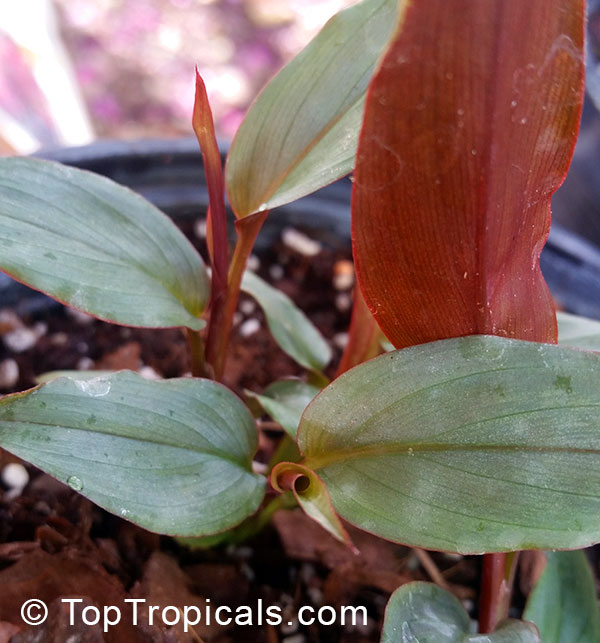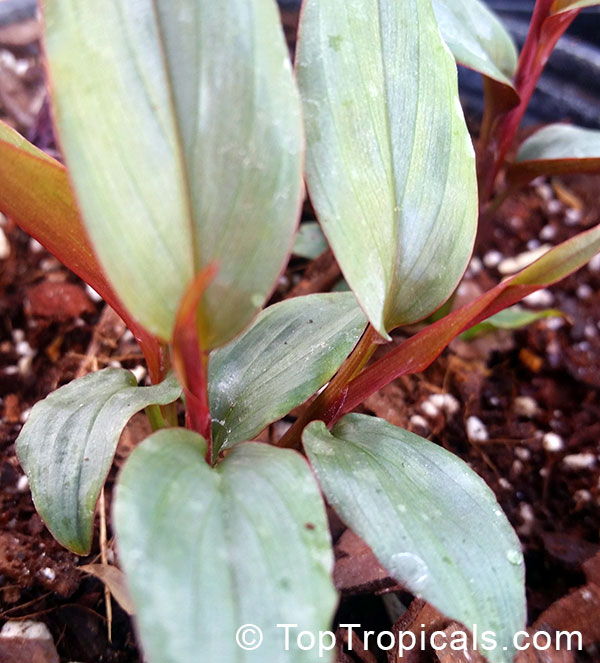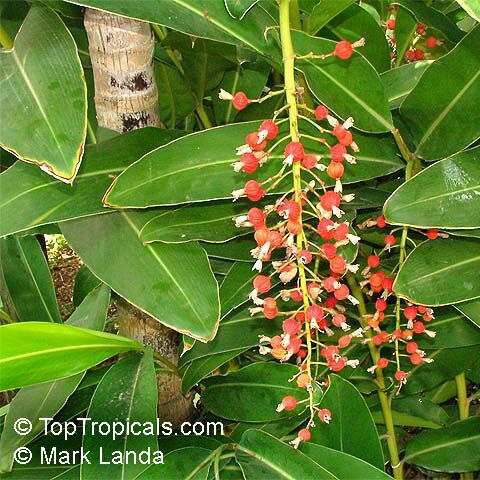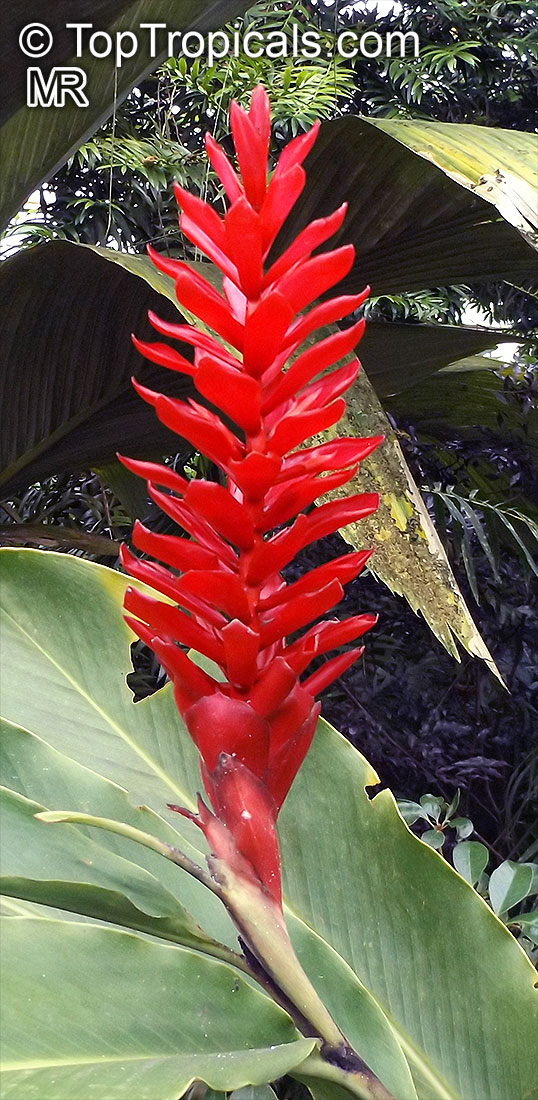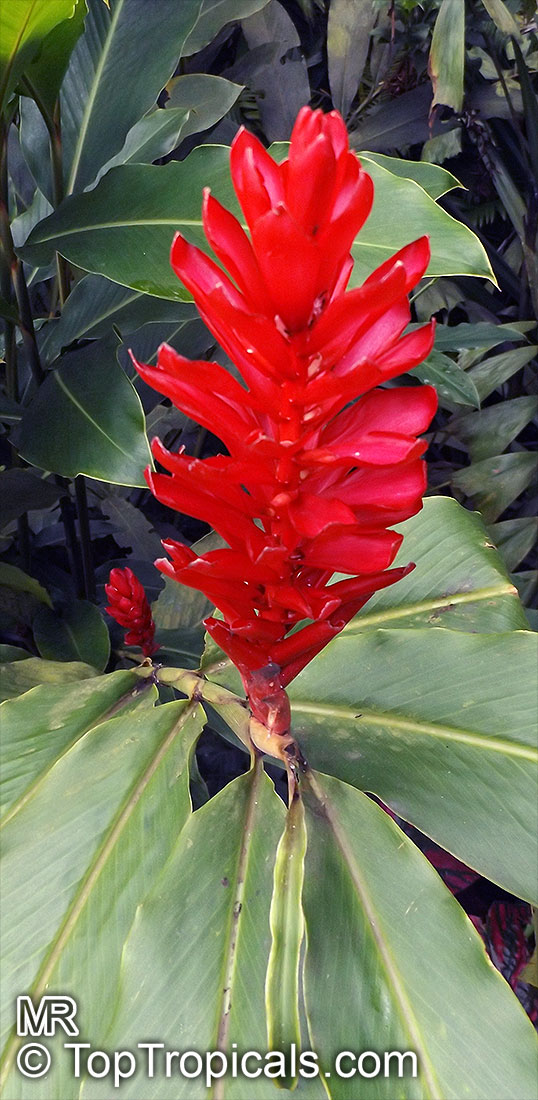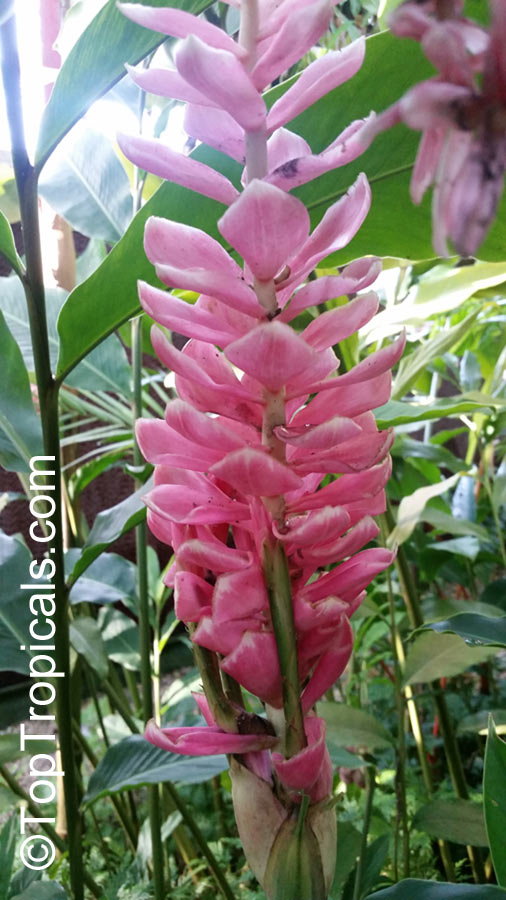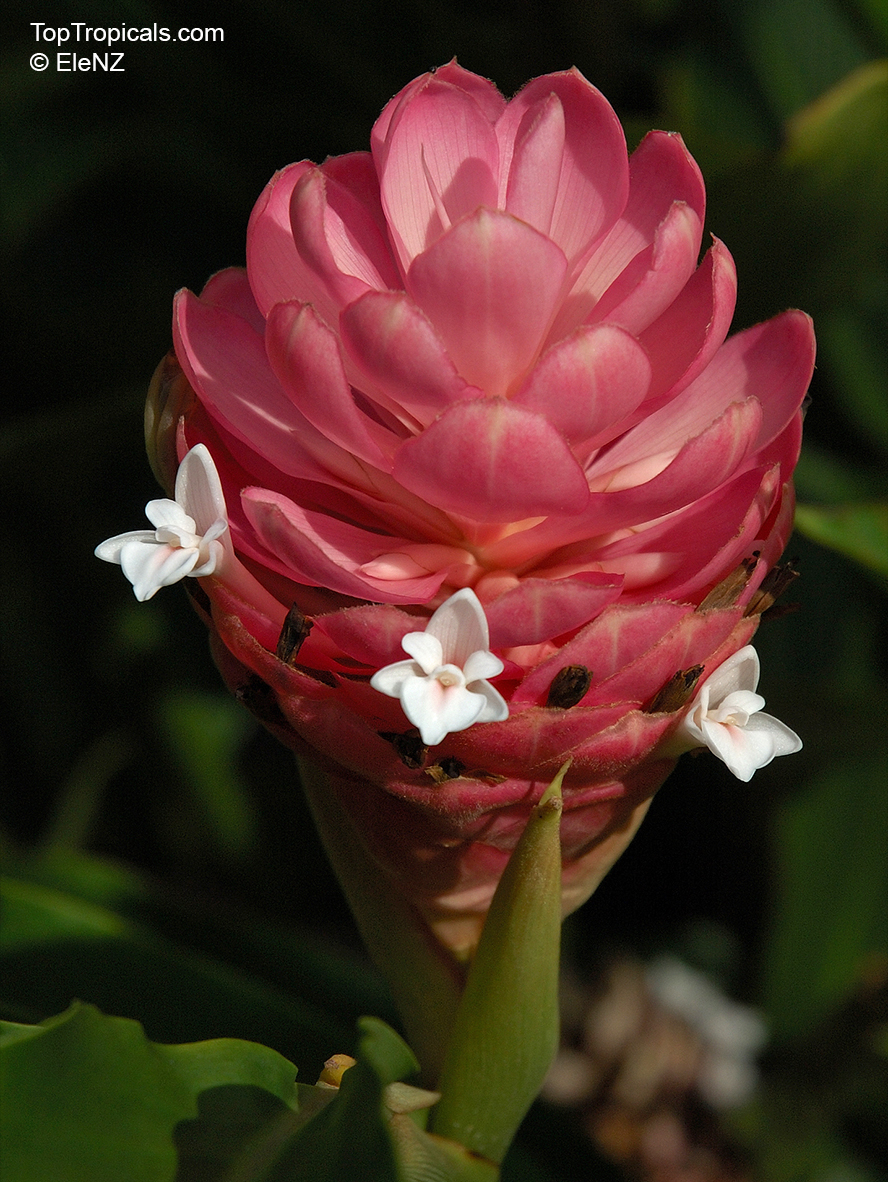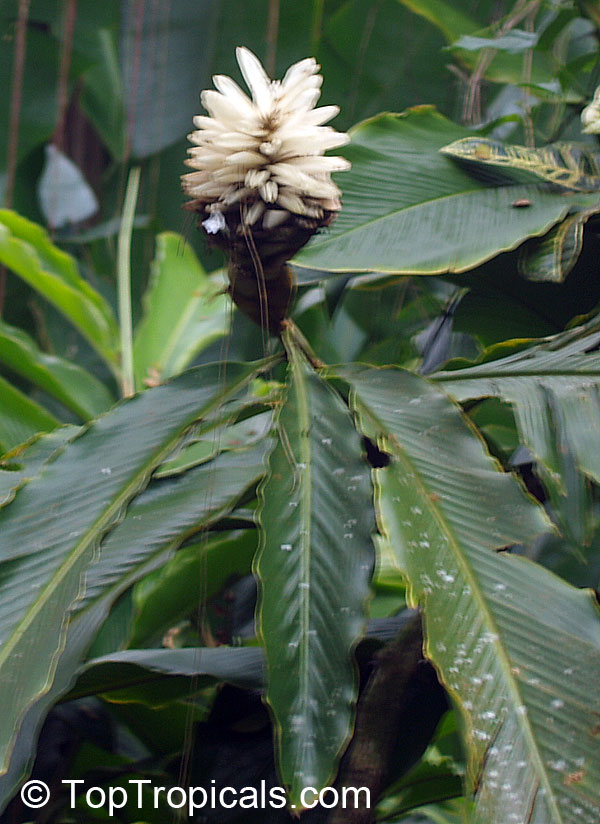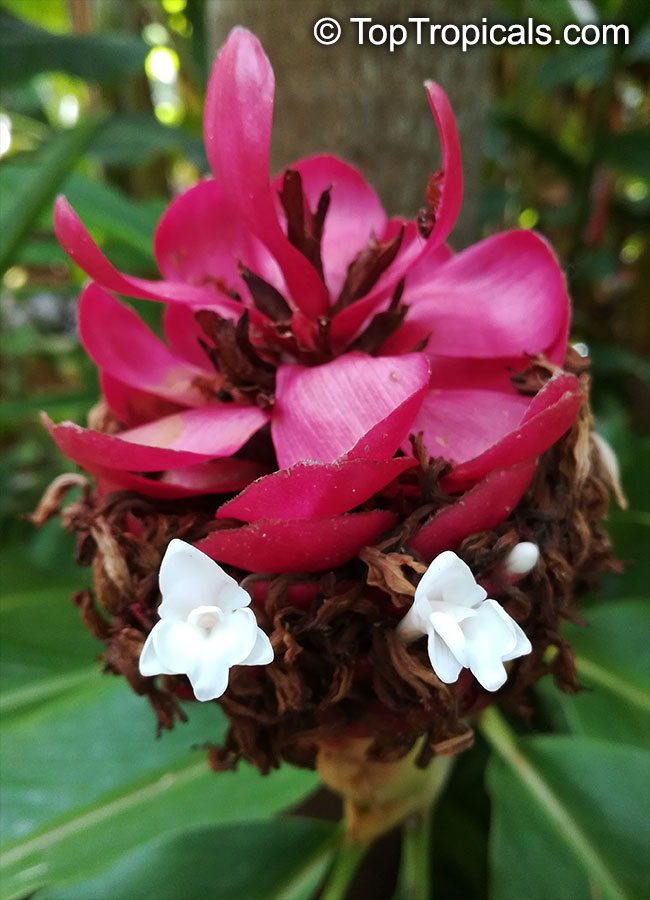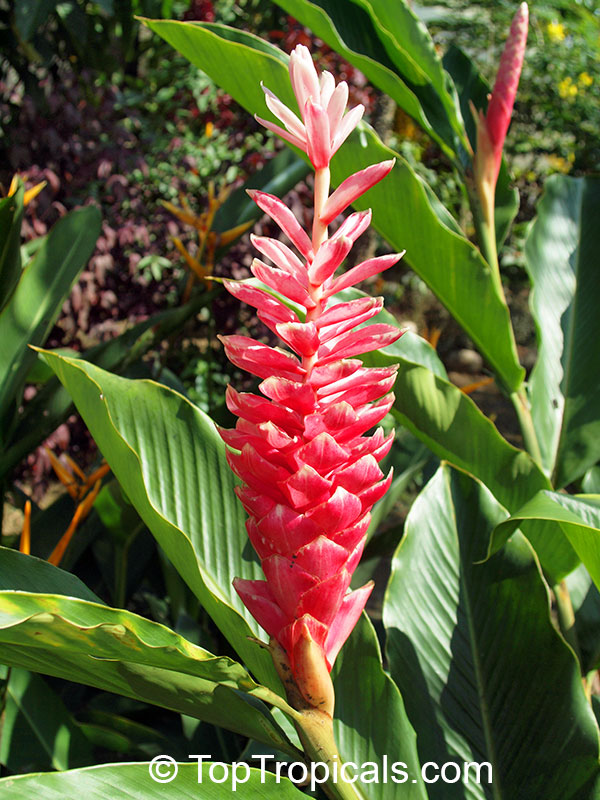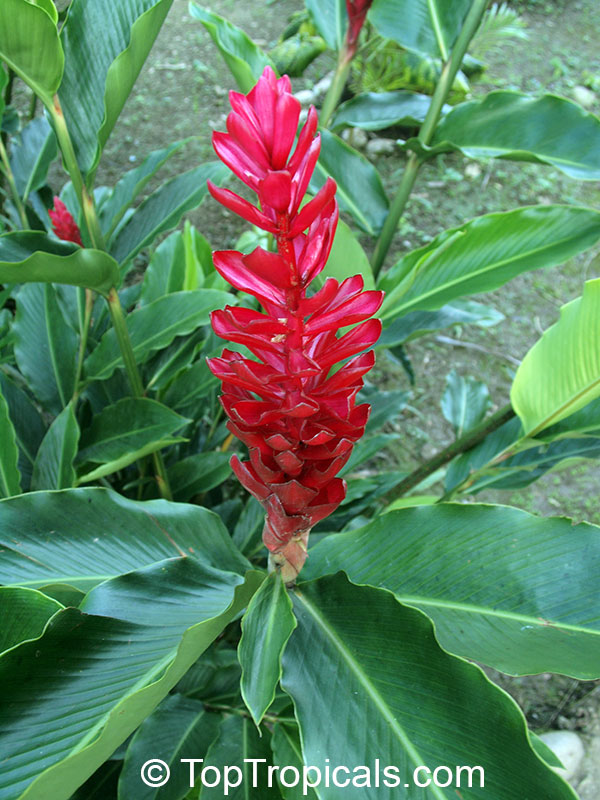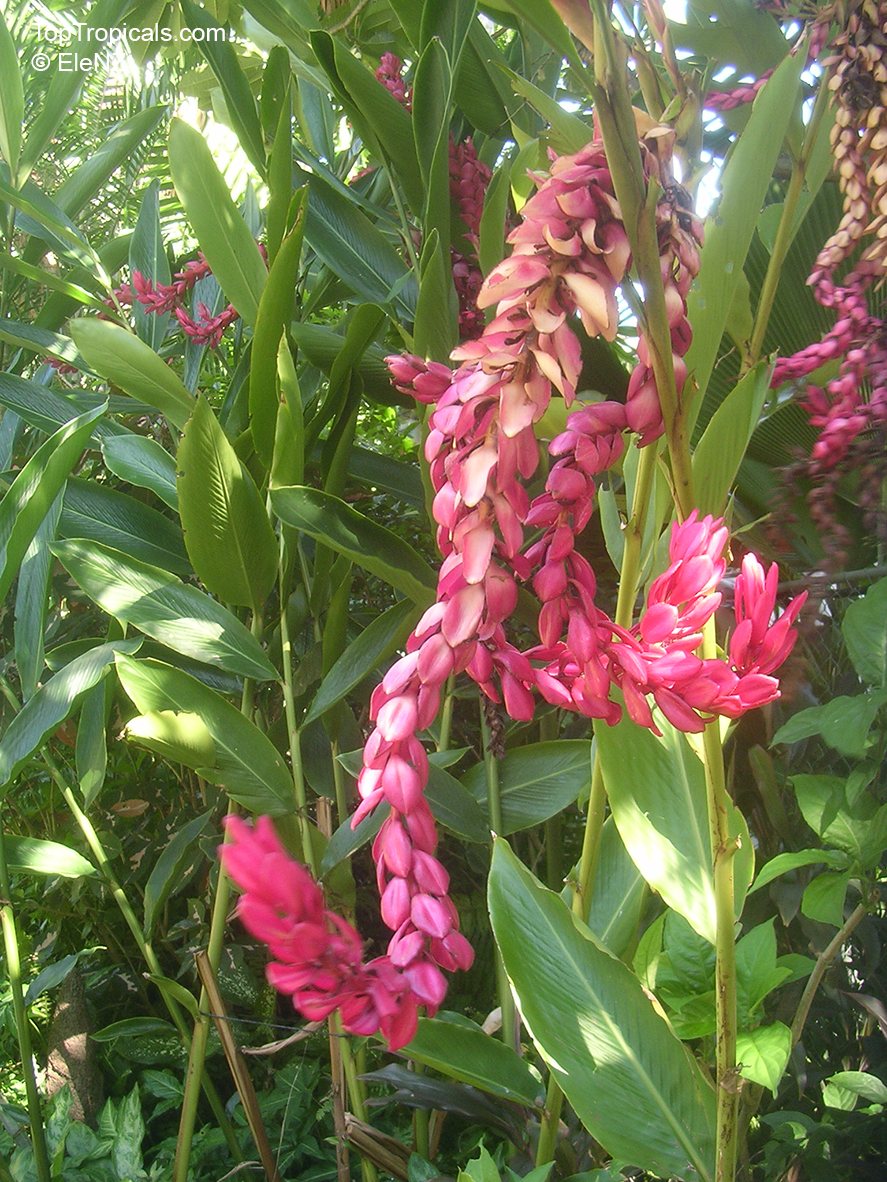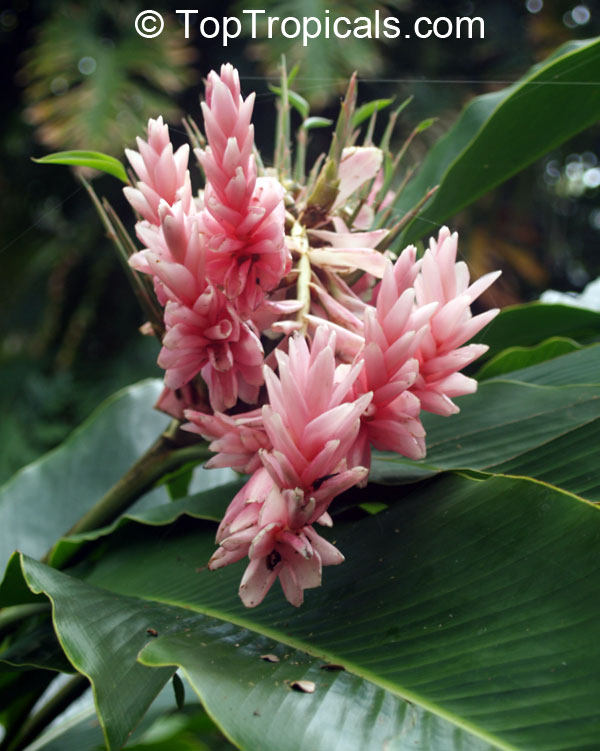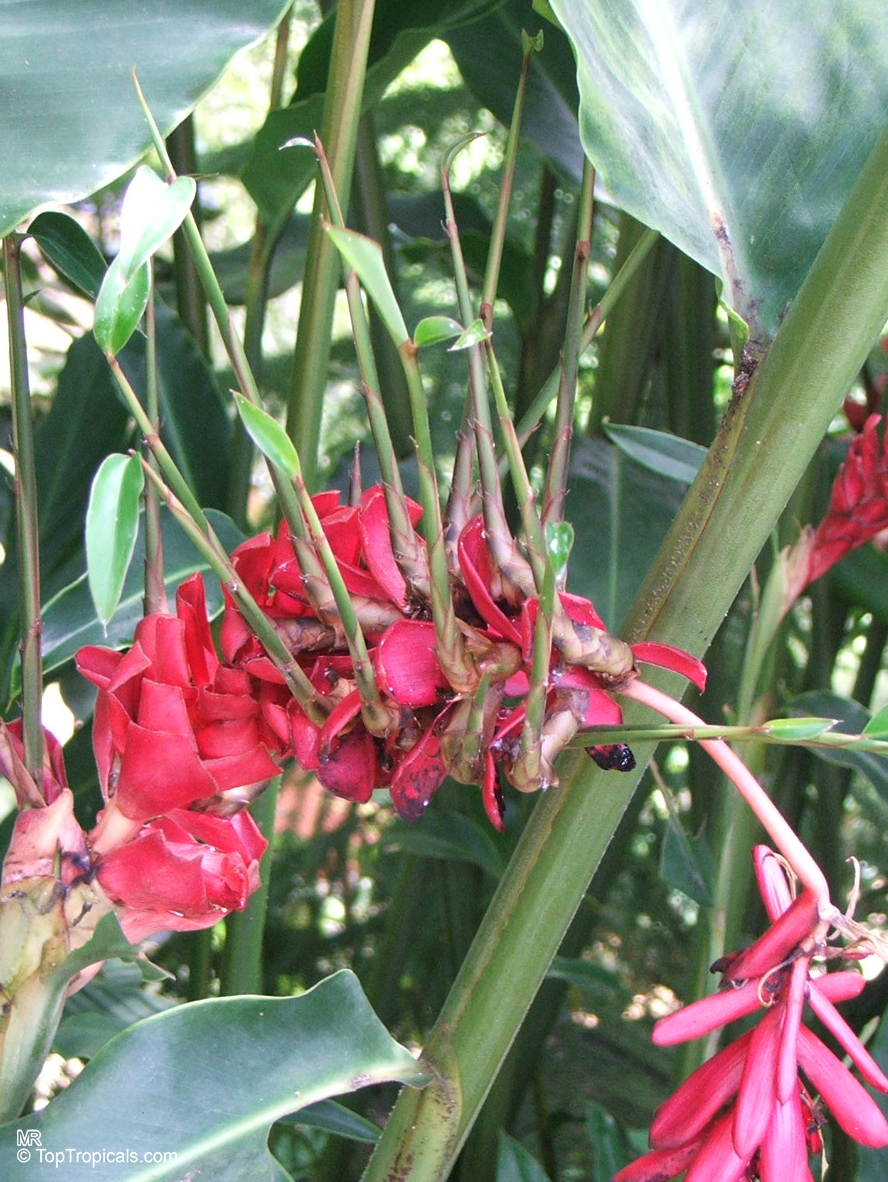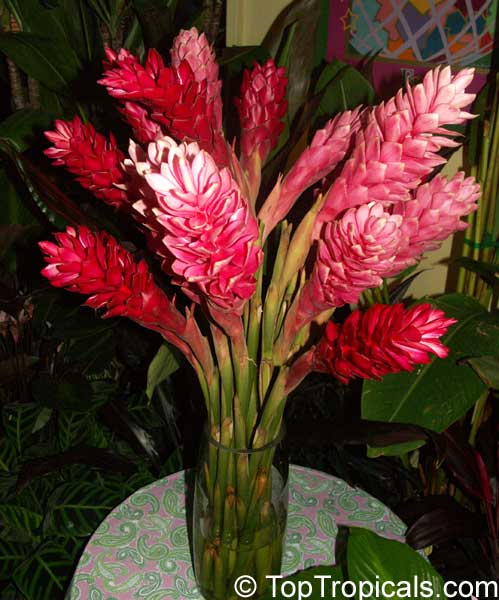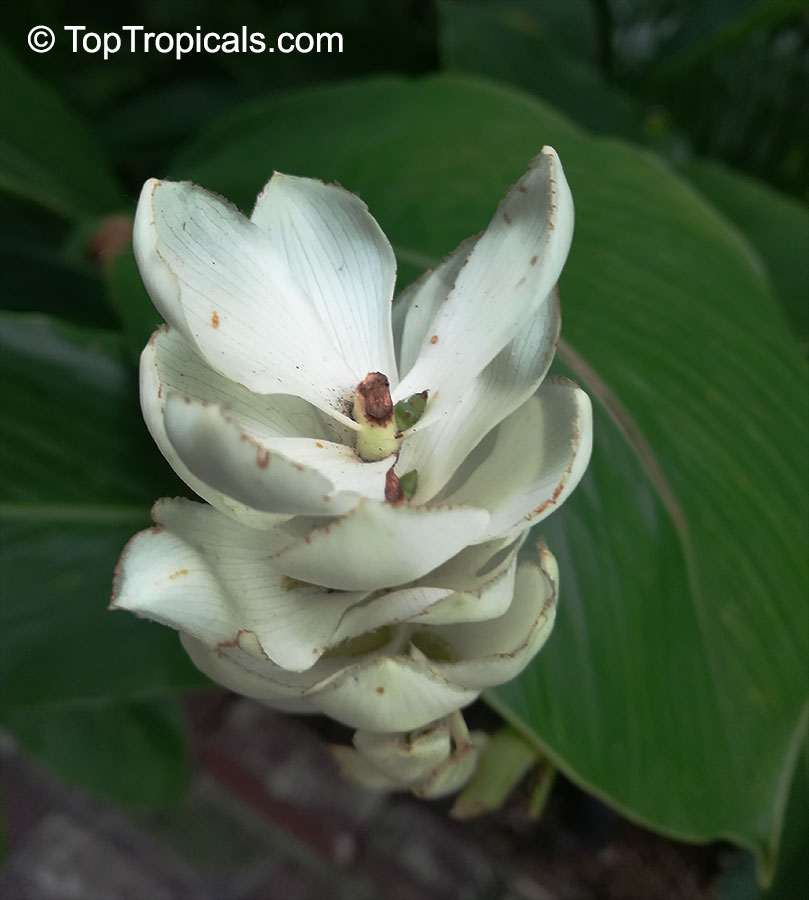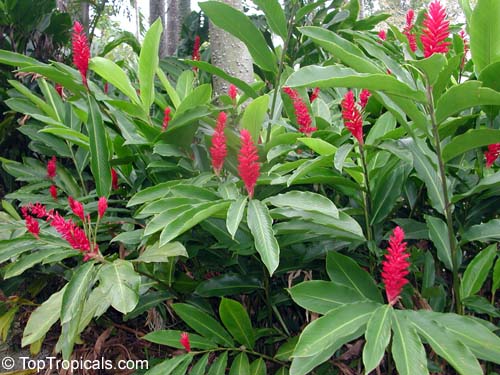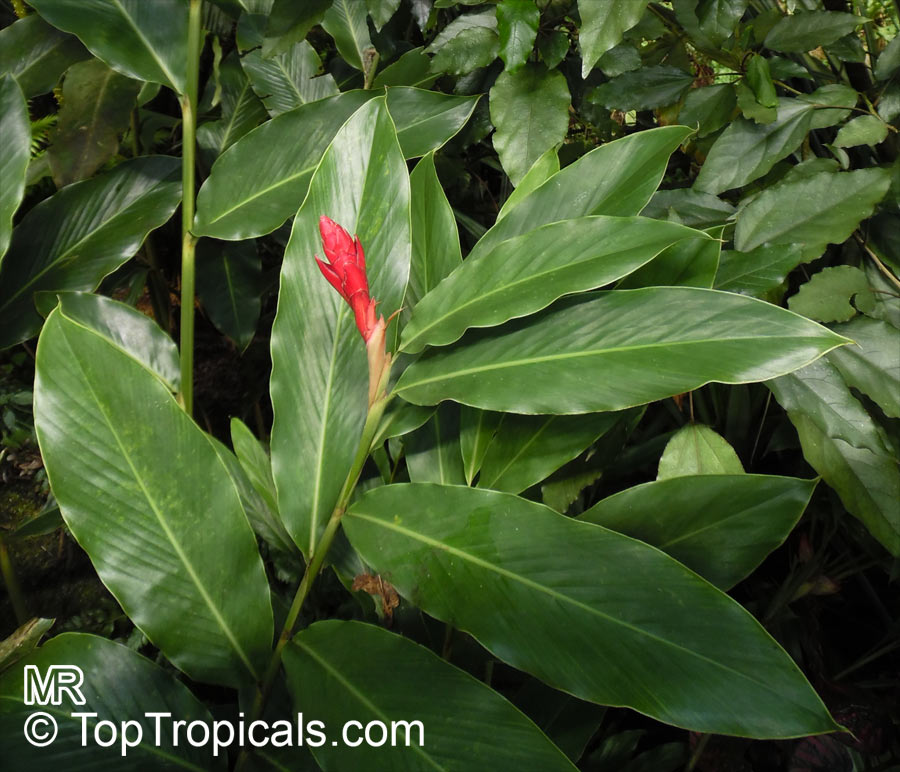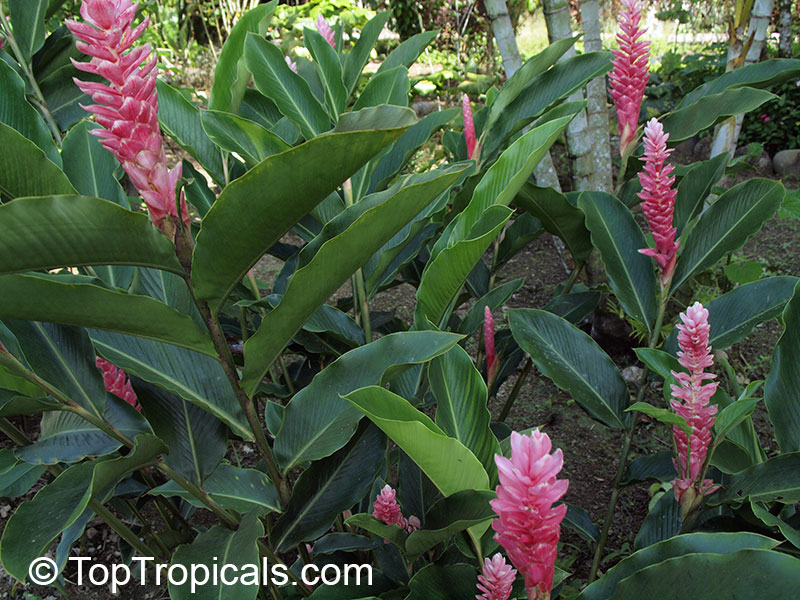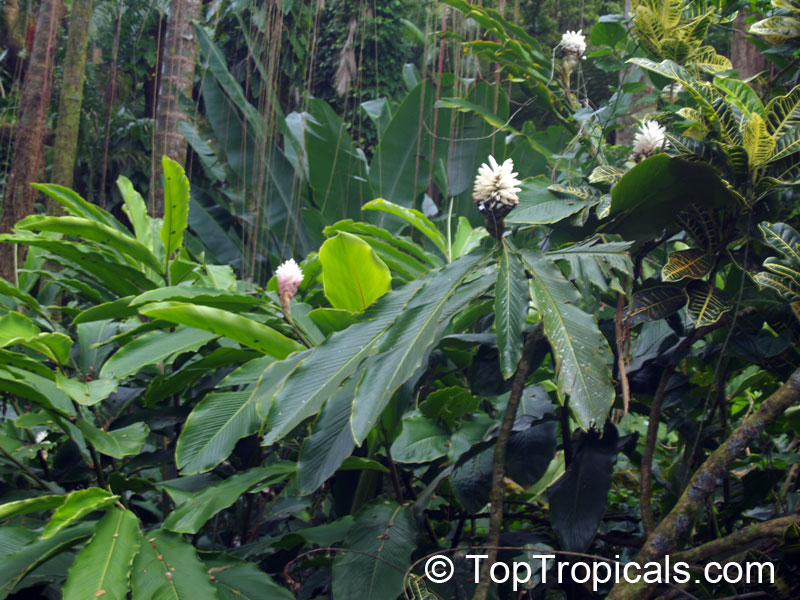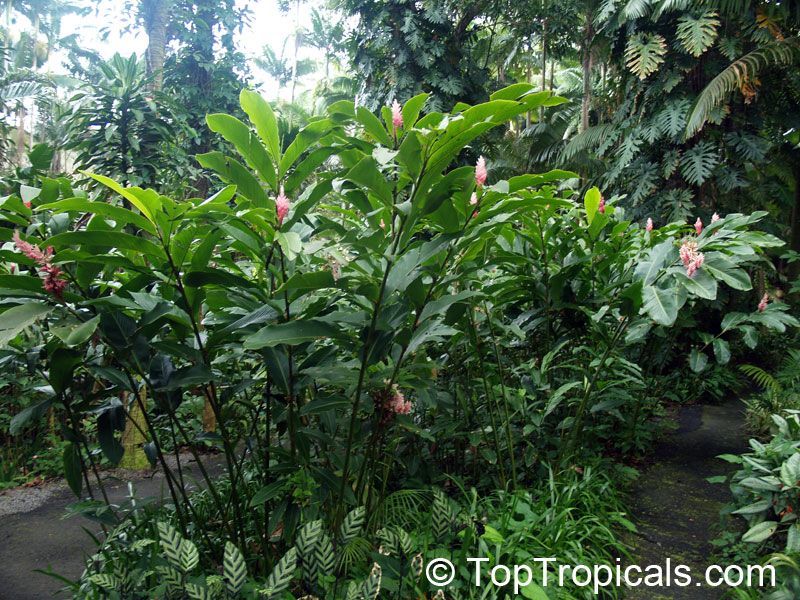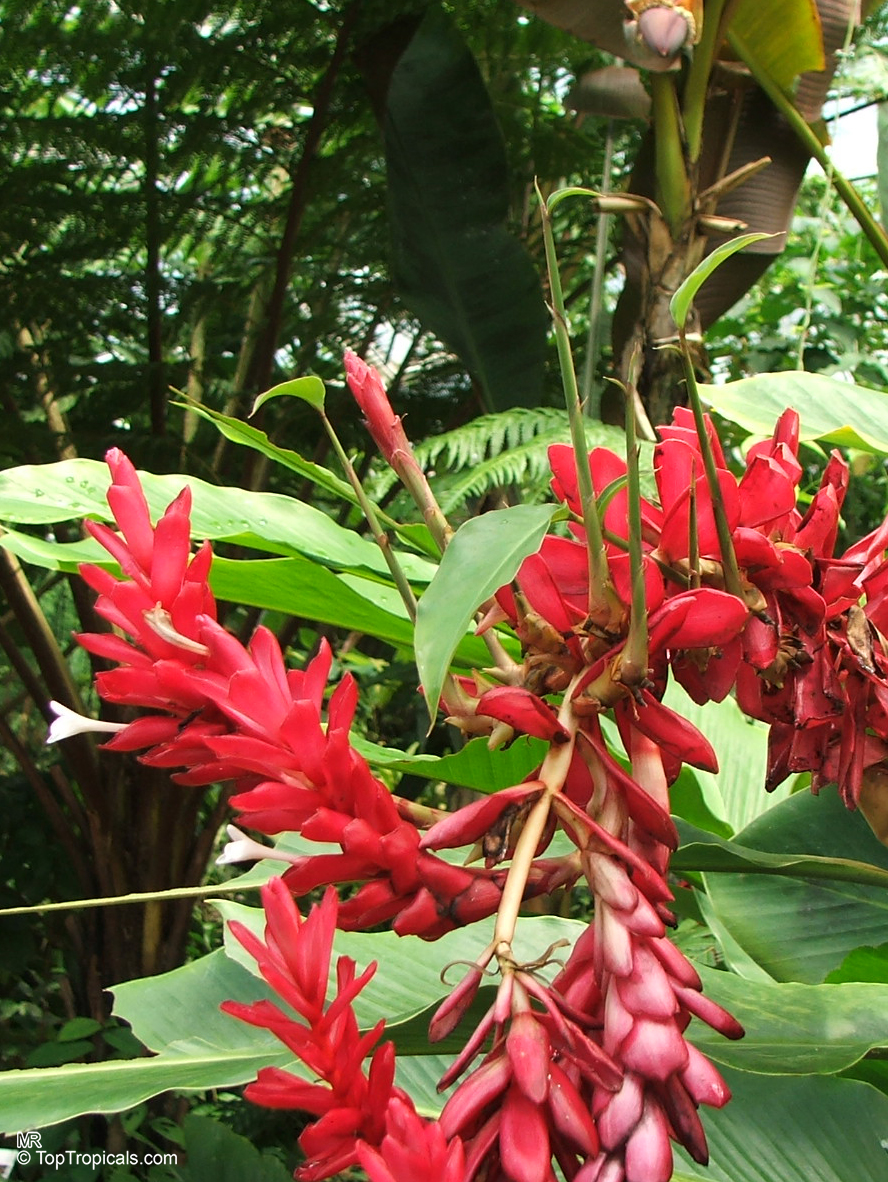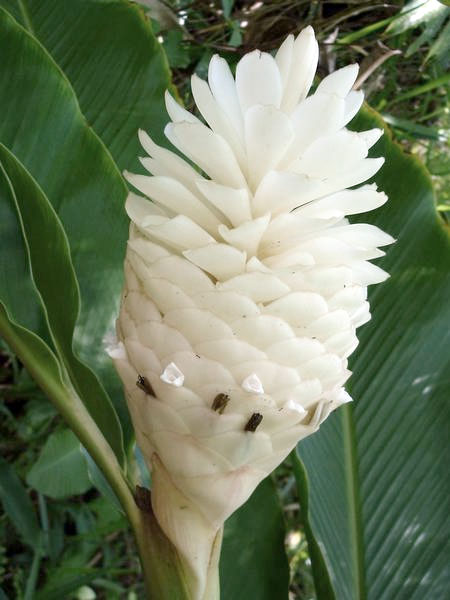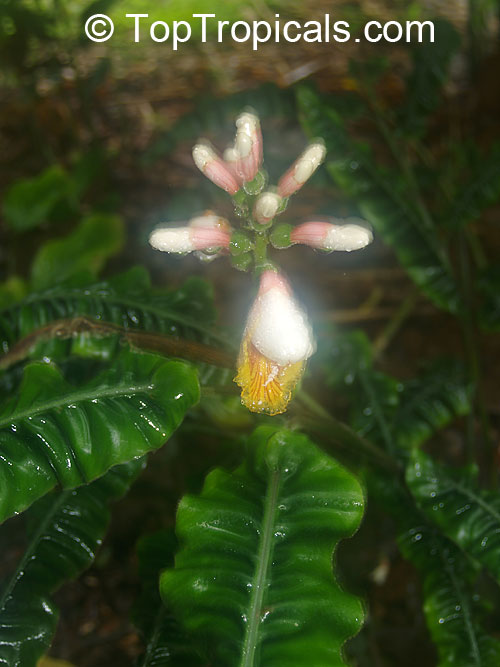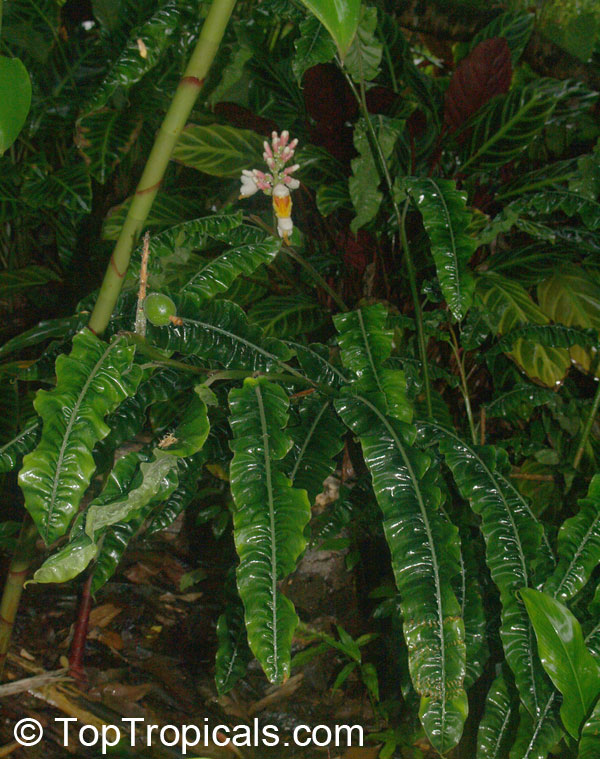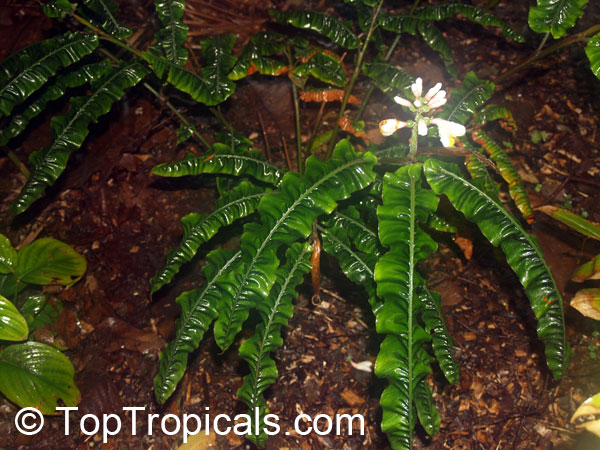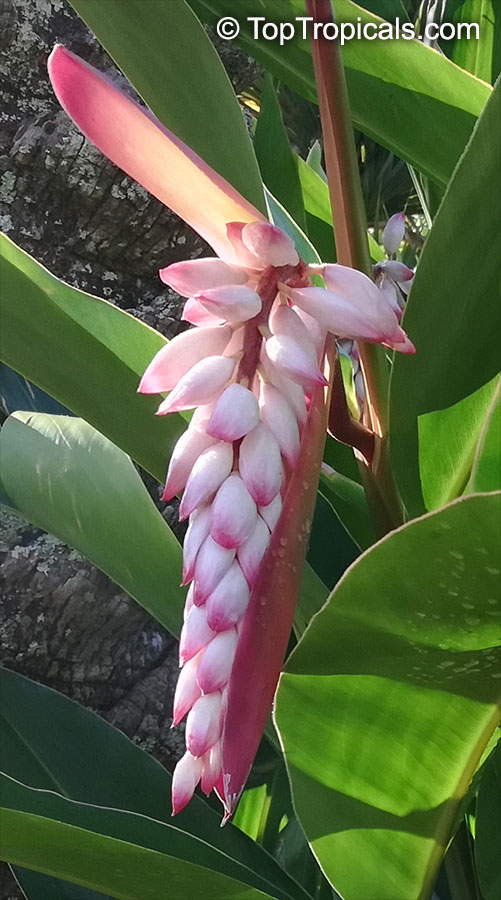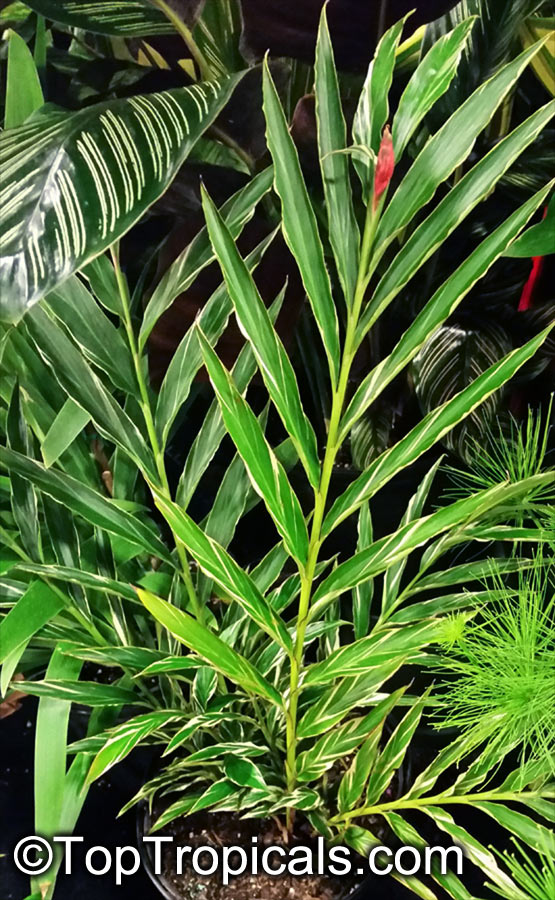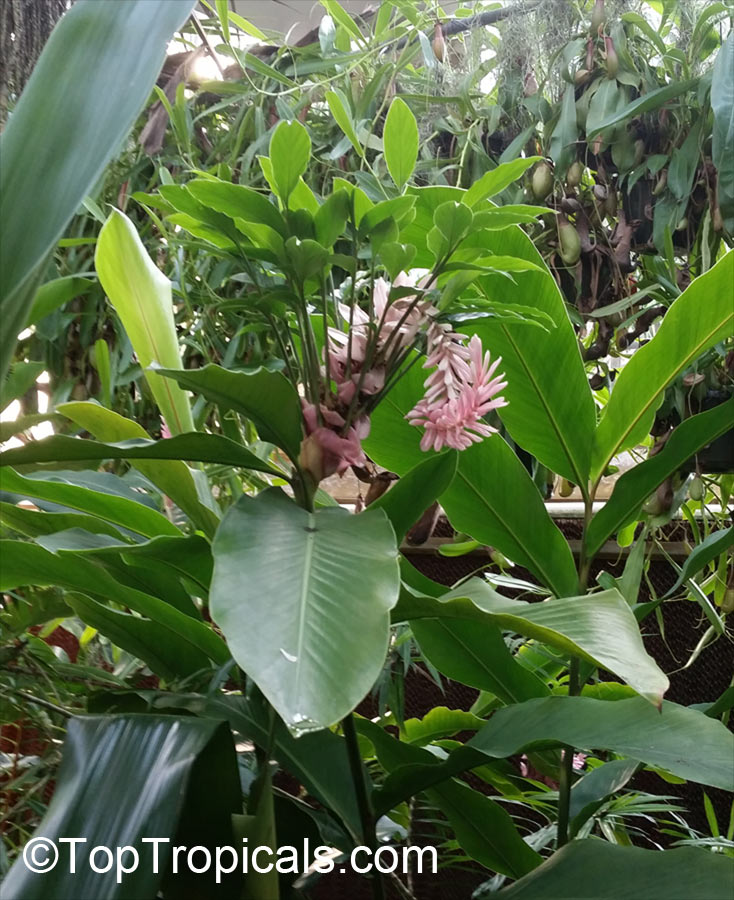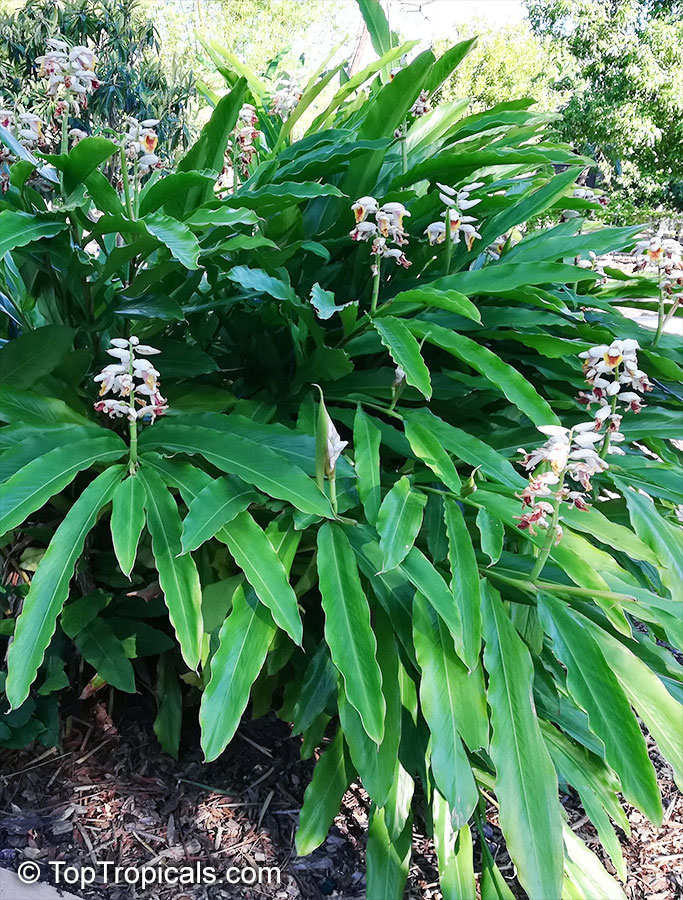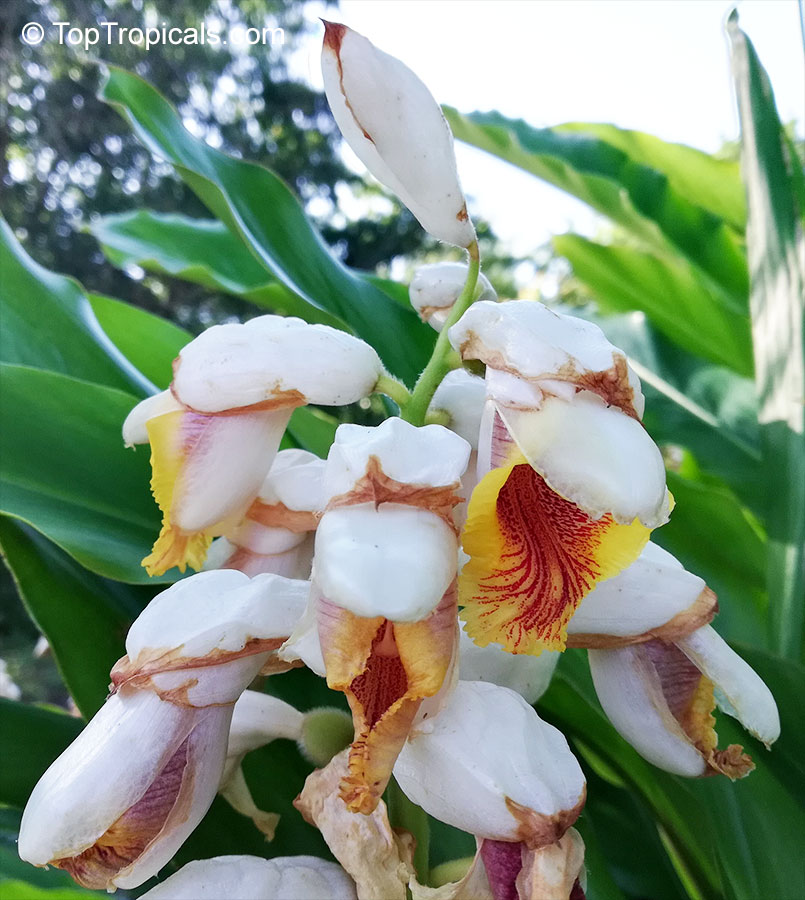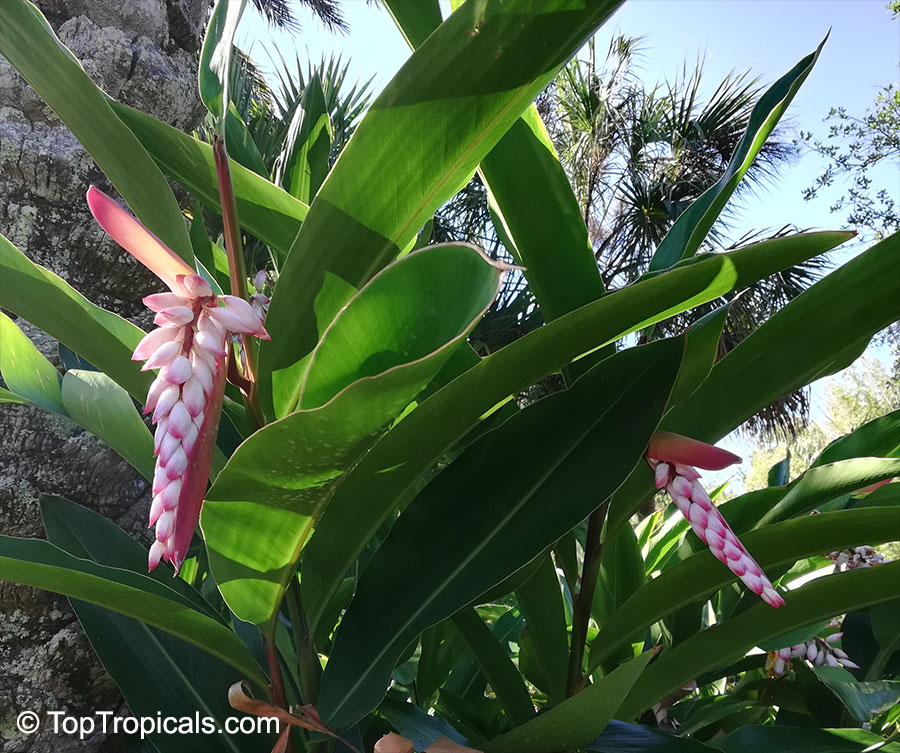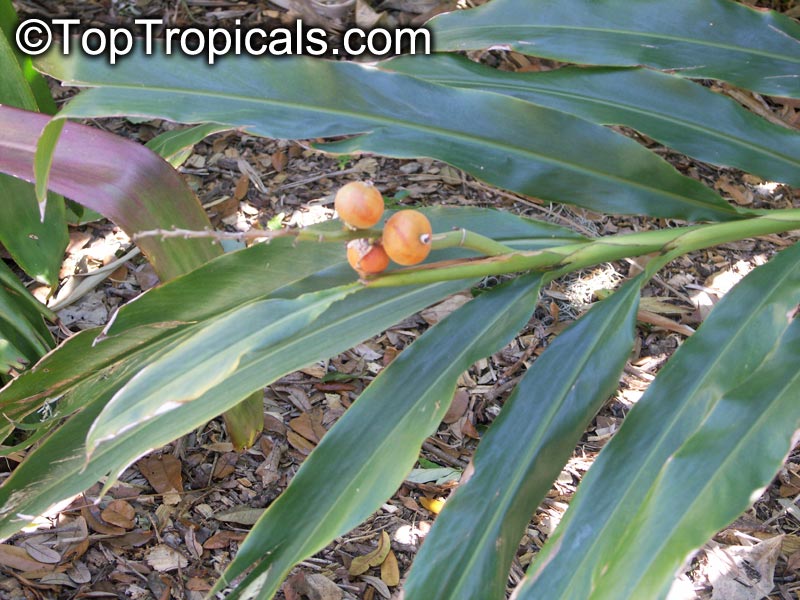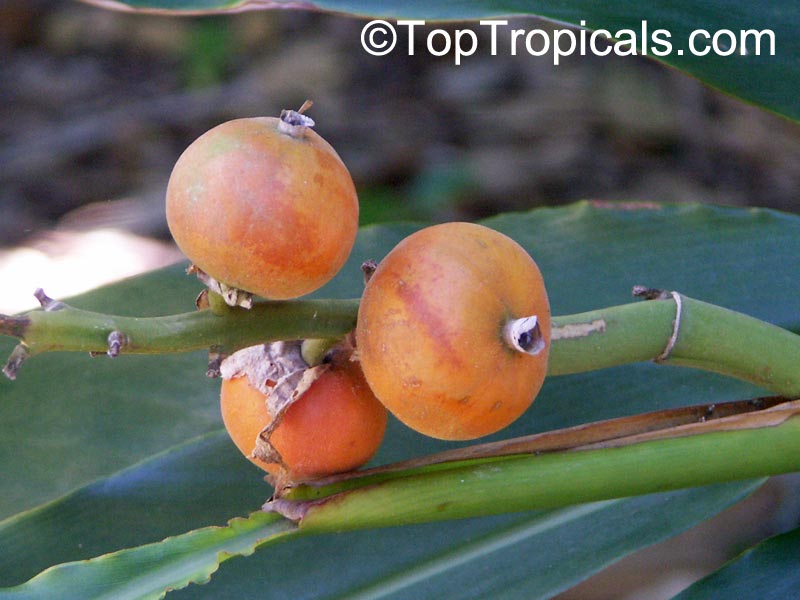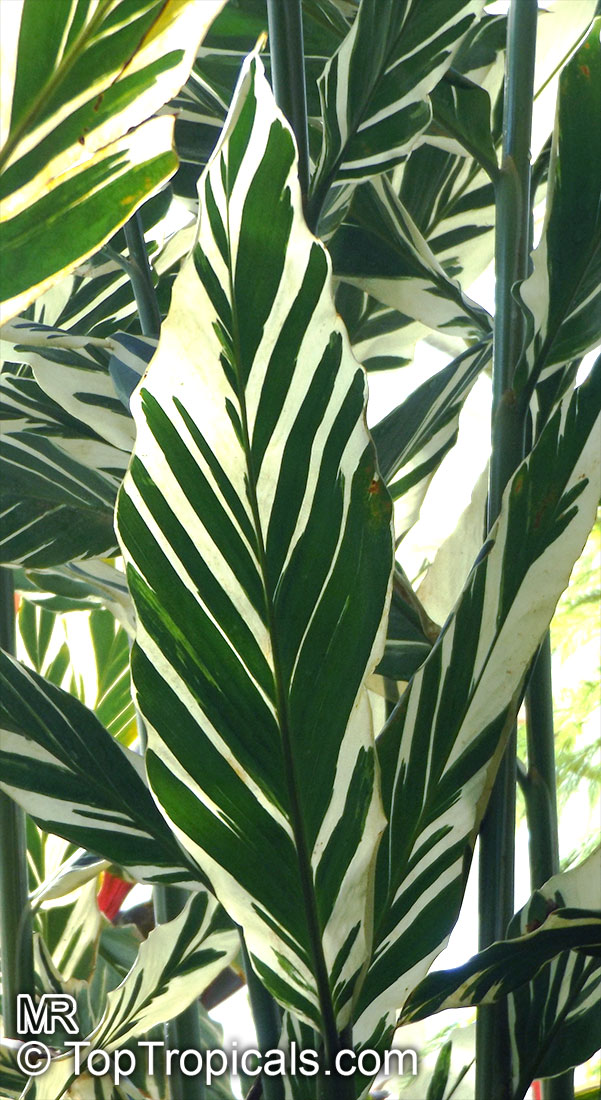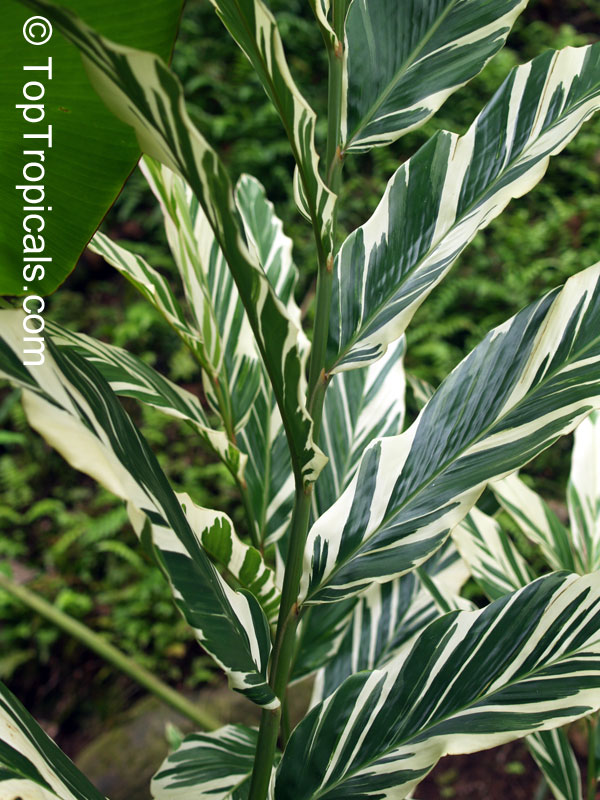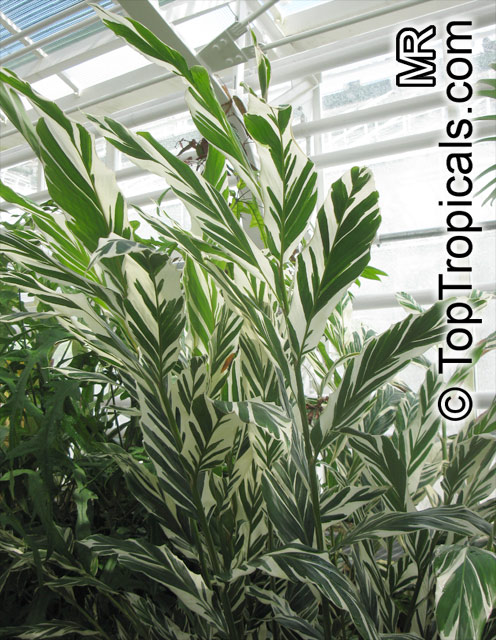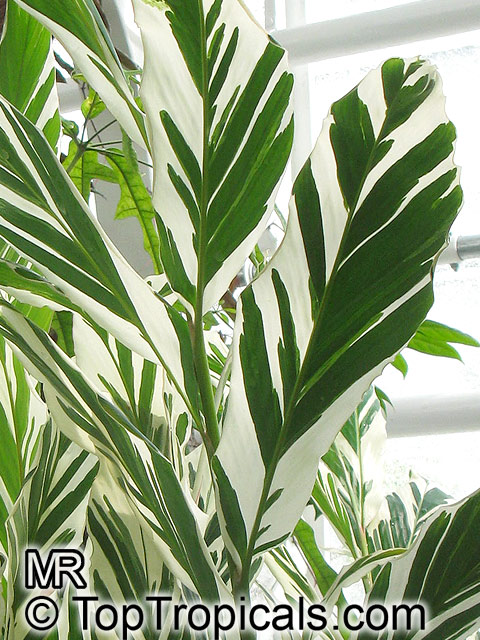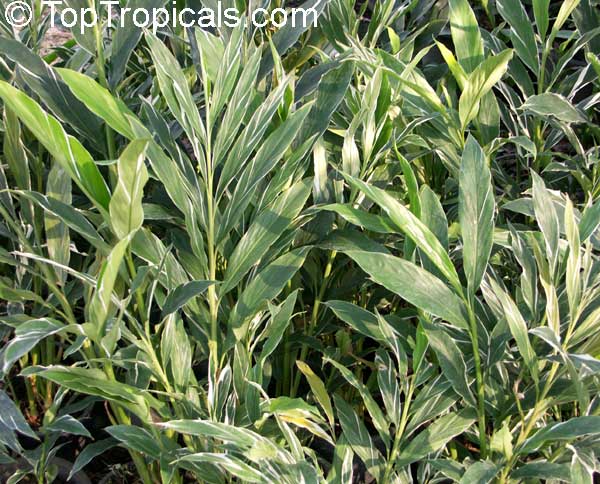Ginger - Plant Encyclopedia Results
Top Tropicals Plant Encyclopedia
| Number of plants found: 84 | Next | 
|
Go to page: | 1 | 2 | 3 | 4 | 5 | Last |
Botanical name: Alpinia argentea
Common name: Yellow Ginger Lily
Family: Zingiberaceae




Alpinia argentea (Yellow Ginger Lily)
Botanical name: Alpinia formosana x zerumbet
Common name: Variegated ginger
Cultivar: Variegata
Family: Zingiberaceae
Origin: South Africa









Alpinia zerumbet 'Variegata' (Variegated ginger) is a small shrub native to South Africa that grows to a height of 2 - 5 feet. The foliage is a glossy green with white and off-white striping, adding interest to the garden.
When planting, gingers prefer soils that are kept moist, so watering regularly is important. In cold regions, it is best planted in a pot as mature plants are cold hardy only to at least 30s F for a short period of time. In order to survive harsh winters, the pot can be brought indoors.
To promote healthy growth, the soil should be well drained with plenty of organic matter. Fertilize twice a year, once in the spring and again in the summer with a balanced organic fertilizer. To further ensure the health of the plant, remove any dead foliage and flowers.
Alpinia zerumbet 'Variegata' is a great choice for the home garden. The colorful foliage and variety of flowers make this species a great ornamental in any garden. With appropriate care and water, this plant is sure to provide pleasure in the garden for many years.
Botanical names: Alpinia galanga, Languas galanga
Common names: Galanga Root, Galangal, Thai Ginger, Laos
Family: Zingiberaceae
Origin: SE Asia









Galanga is an herb used in cooking, especially in Indonesian and Thai cuisines. It is one of four plants known as galangal, and is differentiated from the others with the common name greater galangal (or simply Thai galangal). The galangals are also called blue ginger or Thai ginger.
A. galanga is called laos in Indonesian and is the most common form of galangal used in cooking. It is also known as lengkuas and galanga root.
Botanical names: Alpinia gigantifolia, Zingiber gigantifolium
Common name: Red Ginger Lily
Family: Zingiberaceae







Botanical name: Alpinia luteocarpa
Common name: Red Bamboo Ginger
Family: Zingiberaceae
Origin: Philippines









This fragrant ginger looks like a dwarf bamboo bush. This Ginger boasts dark green leaves with red undersides. Bamboo Ginger is also a fragrant ginger that looks like a dwarf bamboo bush with a great clumping habit. Perfect patio container plant. Prefers some shade. Mature height of 2-3'. Reaches 2-3' and produces flowers.
The specific epithet luteocarpa means yellow fruit.
Botanical names: Alpinia nutans, Alpinia speciosa
Common names: Shell ginger, Pink porcelain lily, Narrow-Leaf Cinnamon Ginger, Shellflower, Dwarf cardamom, False cardamom
Family: Zingiberaceae
Origin: China and Japan
Hardiness: 20°F











The plant is quite versatile and makes for an excellent garden plant in USDA growing zones 7-9. It can either be grown as a large shrub of 5-10 feet in height or as a small shrub of 2-5 feet. Alpinia nutans requires full sun or partial shade, but prefers humid conditions and regular watering. Its stunning hot pink flowers, borne atop long flowering stems, bloom beginning in June and continue until the Fall.
It is a fairly salt tolerant plant, making it suitable for seaside areas. In cold climates, the mature plant is hardy at least to the low 30s Fahrenheit for a short time, although for best results it should be grown in a pot and stored in an area that does not freeze in the winter, such as a greenhouse or garage. Watering should be reduced in cold conditions and kept to a minimum until warm weather resumes. During the spring, the rhizome should be restrained or it will overthrow its container. Plants should be repotted in the spring if they outgrow their original container. Fertilize annually with compost or an appropriate plant food to encourage growth, and do regular pest and disease checks.
Alpinia nutans is similar to Alpinia malaccensis and Alpinia zerumbet. Alpinia nutans var. longiramosa is a synonym of Alpinia zerumbet.
Botanical name: Alpinia purpurata
Common names: Red Ginger Lily, Ostrich Plume, Red Cone Ginger
Family: Zingiberaceae
Origin: Malay Peninsula








Extremely tropical looking, one of the most desirable symbols of Tropics, Alpinia purpurata, red ginger, also called ostrich plume and pink cone ginger, are native Malaysian plants with showy flowers on long brightly colored red bracts. They look like the bloom, but the true flower is the small white flower on top. Red Ginger grows in Hawaii, and many Central American nations, including Belize. It is also found in Samoa, where it is the national flower, and is locally called "teuila." It prefers partial shade and moist humid conditions, although it can tolerate full sun in some climates. It tends to like to be well watered and not left to dry out. Ginger can also be grown as a houseplant and its cut flowers can be used in arrangements. Likes a slightly acid soil. Every other year trim to ground to prevent legginess. Blooms from spring to summer if there is enough humidity.
See Article about Alpinia.
Recommended Fertilizer: SUNSHINE Robusta - Rapid Growth Booster
Recommended Fertilizer: SUNSHINE Robusta - Rapid Growth Booster
Botanical name: Alpinia rugosa
Common name: Evergreen Broadleaf Ginger
Family: Zingiberaceae




This is a semi-evergreen herbaceous perennial with subterranean stems and leafy stalks that grow to about three feet tall. The leaves are spectacularly ruffled.
Botanical name: Alpinia sp.
Common name: Ginger Lily
Family: Zingiberaceae
Origin: Asia, Australia, Pacific Islands















Botanical names: Alpinia vittata, Alpinia albolineata, Alpinia sanderae, Alpinia tricolor
Common names: Striped Narrow Leaf Ginger, Variegated Ginger
Family: Zingiberaceae
Origin: New Guinea






This small plant can grow to a height of 2-5 ft and likes semi-shade. It grows beautiful, fragrant pink flowers that bloom during spring and summer months. The ornamental foliage adds a splash of color to any garden.
Alpinia vittata is a gorgeous plant native to New Guinea. It is a fast grower that requires regular water, but can thrive in both sunny or semi-shaded positions. It will reach a maximum height of 2 to 5 feet, making it an excellent ornamental garden choice. The foliage of this plant has striping of white and cream, which adds to its beauty. The most distinctive feature of this plant is its fragrant pink flowers that bloom in spring and summer months.
Caring for Alpinia vittata is relatively easy. The plant should be kept in well-draining soil, and you should water it regularly without overwatering. Make sure to fertilize the plant once a month during the growth season. In cold regions, it should be grown in a pot with adequate drainage to protect it from frost damage.
This stunning plant is best suited for USDA Zone 10-12. If you're looking for a unique addition to your garden, Alpinia vittata is an excellent choice due to its low maintenance requirements and fabulous looks. With its fragrant flowers and bold foliage, this lovely plant will add a touch of beauty to any outdoor space.
| Next |  |
Use link to repeat this search:
https://toptropicals.com/cgi-bin/garden_catalog/cat.cgi?find=ginger&search_op=and&keyword_op=and&language=e&number=10
&no_change_lang=1&user=tt&sale=1&first=0
